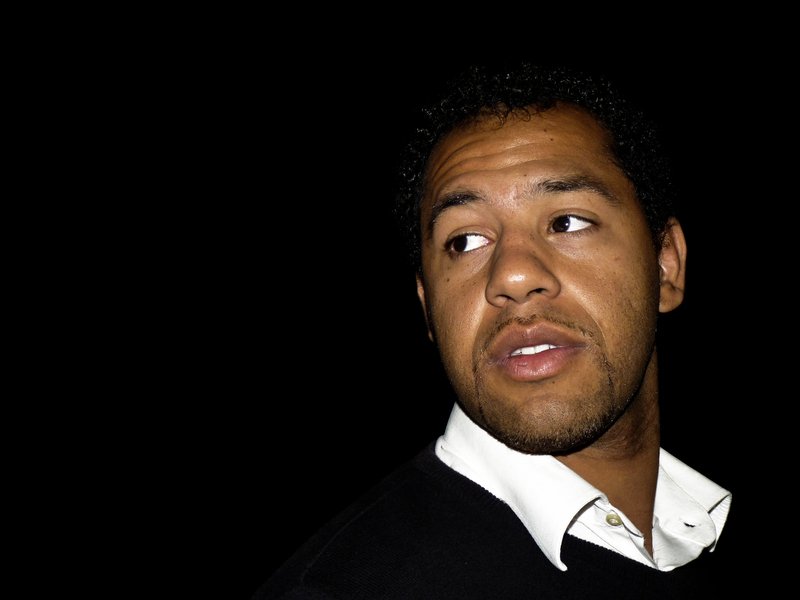WHO IS RICKY TARMAHOMED?
The 35 year-old songwriter and singer is a self-taught musician who has enjoyed making music for well over a decade. Originally from Portugal, Ricky began taking his first steps into the music world by writing lyrics at a very young age in the middle of class. "I remember writing lyrics in English at around the age of 8, in a very scruffy kind of way. I was still learning how to speak English and didn't know how to write, so I wrote it how I listened." That was all it took.
In the years to come Ricky would follow his brother's musical journey, who at the time was getting started in Hip-Hop. To the sounds of Nas, The Notorious B.I.G, 2 PAC, Nonchalant, Keith Murray and many, many others, he watched his brother and best friend freestyle to loops they had mixed themselves. Inevitably, the Portuguese songwriter started rapping too and, from 1996 onwards such Hip- Hop influence was constantly present in his music.
Without any devices to help him mix and loop beats like his brother had, the young aspiring rapper learned how to beat-box and how to beat-box while freestyling as he tapped deeper into his talent. Unfortunately, Ricky didn’t get to study music. Growing into an economically poor family, meant he could only study so much. It also meant he would have to figure his own way through this “disadvantage”.
As the number of his lyrics grew, so did a problem. His lyrics did not have a beat to be sung or rapped. A minor setback that wouldn’t last. In the late 90’s to the early 2000’s, the songwriter was exposed to something he had not heard until then, a new level of R&B and Hip-Hop, with crunchier kicks sequences, synth bass and melodies that were catchy, daring and involving. These songs’ biggest contributors were at the time Missy Elliott, Ginuwine, Aaliyah, Timbaland & Magoo, Playa and more recently Justin Timberlake, Jay-Z or Beyoncé. All of these artists had one common factor; many of their albums had been produced by Timabaland. This new influence triggered in Ricky a taste in music production that he knew it was worth feeding.
His start in music production wasn’t easy. Ricky was attending secondary school to study Technological Design in city of Caldas da Rainha and also trying to work on his music. Since he didn’t understand much about the making of a song, Ricky faced criticism when showing the first songs to a small audience. There were glaring problems and mistakes in his music that a trained musician and producer wouldn’t make. All of the sounds were in mono, so they were noisy. The lack of knowledge of the concept of tempo, although the rhythm was there, caused the songs to sound disjointed and with an inconsistent pace at times.
These mistakes were unforgivable for some who were first exposed to the upcoming artist, but all Ricky asked for was time. Years went by and Ricky’s skills, knowledge and quality improved while he made new musical friends in concerts he either organised or was invited. It was in one of them that he organised that Ricky met his music associate and long-time friend CSD. Together, they began making music and gigs, all in the city of Caldas da Rainha.
In 2008, the duo participated in a Hip-Hop contest about poverty where they were selected for the 10 best in central area of Portugal, showcasing the song “Realidade Crítitca”, available on YouTube. Their participation felt almost like an epiphany, seeing on TV the ad for the competition at the exact moment he questioned himself about continuing to make music and just a few days before the contest submission would close. During the recording of the song, which he also produced, the duo went through a few challenges.
Unexpectedly, all of his recording equipment stopped working and so they had to improvise a way to record the song by using a pair of headphones to capture sound instead of reproducing it. Time was not on their side either. With days to wrap the song, record a video clip and submitting it for consideration, Ricky and CSD were having difficulties to meet up, meaning they had to maximise any little time available to reach their goal. In October 2010, Ricky was selected again for the top 10 of the Rock Rendez Worten contest in the category of R&B/Soul/Hip-Hop, performing live to the delight of the press.
In 2012 he moved to London and signed a music contract with a new upcoming Portuguese record label Hell Hot Hell, releasing shortly after the E.P. The Phoenix Initiative – Vol. 1. Sadly, a couple of years later the record label went bankrupt and closed. Three years after his debut album, Ricky released a new project on his own, Defying Gravity, which was composed by 10 songs. The tracks were structured to tell a beginning of a relationship, as demonstrated on its first song “Crush”, the end of it, as sung on his ninth track “Toughest Lesson”, and a new belief in love with the closing song “It Feels Right”.
Coming back from a four-year hiatus, the musician is currently working on new music and enjoying the neo-soul influence. The songwriter is spending time on his guitar trying to find new sounds and rearranging his songs to a point he can consider them ready. He has released four new songs so far and has promised that more are on the way.
Though he was featured in recently released Lifoti's January/February 2020 issue 11, you can check it from below link's for your country:
United States | United Kingdom | Japan (Asia) | Canada | Mexico | Germany | France | Italy | Brazil | Spain | Australia | New Zealand | Ireland | Portugal | Russia | Netherlands | Poland | Finland | Sweden | Greece | Switzerland | Czech Republic









No comments